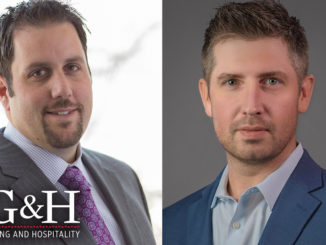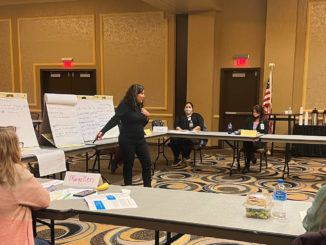
As the saying goes, if you fail to plan, then you’re planning to fail. So many times, I see hosts who just go where the wind blows them every day. This is a huge mistake! Hunters plan. If they don’t, then they will never accomplish their incentive goals and achieve the most “bang for their buck.” Hosts are in sales, and a host’s main objective is to increase revenue. To do this effectively, you must learn how to manage your time. Time truly is money in the business world, and we must never lose sight of the fact that our time is finite and, thereby, extremely valuable. It is imperative that you take the time to organize and map out everything you do. Mapping out your time plays an important role in your success. It helps you focus on what is important and what drives revenue. These actions are truly the difference between success and failure.
When we say plan, that means YOU determine how you are using your time to be most effective. It isn’t just going to fall in your lap. Your effort will determine your outcome, both for the immediate time frame, as well as the future. Then you must determine who you need to reach out to or focus on. What comes next, followed by why and, finally, when. Without an organized plan, you will get dragged into things that will distract you from your main job as a host, which is increasing revenue.
Step 1 – HOW
- Plan how your day/week/month should look
Mapping out your day/week/month will not only help you accomplish critical and important tasks, but it is also a place marker for when you get interrupted. If you have been in the business as a host for ANY length of time, then you know you will be called upon many times a day to put out fires. So this map also functions as a place marker. Without it, you will waste a huge amount of time trying to remember where you were when you return to your work area. Remember to continually adjust your plan as necessary, because a variety of factors (internal and external) can affect what you originally planned for.
- Don’t be busy, be productive
There is absolutely no point in working just for the sake of doing work or simply doing your eight and hitting the gate. I have found that scheduling out my day in 10 to 15-minute increments works better and is more effective. Especially when you add in the fact that you are going to be constantly interrupted, as was mentioned above. Remember, you can only eat an elephant one bite at a time!
- Prioritize
Again, it’s all about having a plan. To take full advantage of your time, make sure that you are separating your time by strategy. Everything you do throughout your day should be based on the four strategies: Acquisition, Retention, Growth, Reactivation. You only have eight hours (give or take), so you must be organized. So, where do you start? First, focus on those strategies that will increase revenue: Acquisition, Growth and Reactivation. High-value, low-trip is your low-hanging fruit. Just one additional trip in only 10 percent of any of these categories will move the needle! Second, look at the incliners and decliners. We want to encourage the incliners (keep on going!) and find out why some are declining (more on that later).
Step 2 – Who, When, What, Why
Questions help us learn. Learn about who we are talking with, what is important to them, why they do what they do, and when to sell. Let’s break it down:
- Who
Are you talking to?
Do I need to reach out to first?
- When
Do I sell to this player?
Do I move on?
- What
Drives their buy decisions/factors?
Do I know about this player?
- Why
Is this player declining/inclining?
Doesn’t this player come anymore?
Using the strategies, how can we best leverage the 4 Ws to reach your goals?
It should go without saying, but with acquisition, first you need to find out WHO you are talking to. You begin to develop that relationship. To do that honestly, you can’t start with selling. Use the 3 Ls (listen to learn, to lead the conversation) to find out more about the guest and so that you can build a player profile. The player profile is the most important tool for successful sales. The player profile is something that should continue to grow throughout the lifetime of the relationship with that guest. It should never be “set it and forget it.” People change, situations change. Listening is a successful host’s greatest skill.
Retention players are those guests who we have a relationship with and who are loyal to our casino. Retention is a maintaining strategy. We want these players to maintain their current level of play and they need attention, so we need to know WHEN to actively sell to them. Often, retention players are more likely to call first for anything that is happening at the property. They know what we offer and, for the most part, know what they qualify for. However, this doesn’t mean that they won’t try to manipulate the relationship in order to get more! That is why boundaries must be set when dealing with these players. Not just to avoid entitlement, but to also control your time management. It is way too easy to get tied up in situations and conversations that don’t bring in additional revenue. Be honest and respectful, but own your time!
Growth brings us to WHAT. Through building those relationships and player profiles, we learn the guests’ buy decisions and their buy factors. What are they interested in? What are their favorite games? What is important to them? What is it going to take to drive one more trip? If you increase trips, then you increase revenue. If a player is showing a significant increase in play, then we want to be able to acknowledge and encourage that play accordingly. We also need to know what is causing the increase (tax return, inheritance, big jackpot, increased wallet share, etc.).
WHY should be a host’s favorite and most used word. Why questions help you find out more about the person you are speaking with and will continually give you additional information to add to a player profile so that a host can sell more effectively, and thereby reach their goals. This is true for both known and unknown guests. These questions will give us the best information to determine buy factors, buy decisions, decline in play, and a multitude of other crucial information needed to build those relationships. Why questions are also vital in guest recovery. These questions will help you come to a more satisfactory conclusion in difficult situations. Guests just want to be heard!
Key takeaways:
- Make a plan and define your goals.
- Manage your time efficiently.
- Know your role (to increase revenue for the casino).
- Learn to ask WHY and LISTEN more than you speak.




